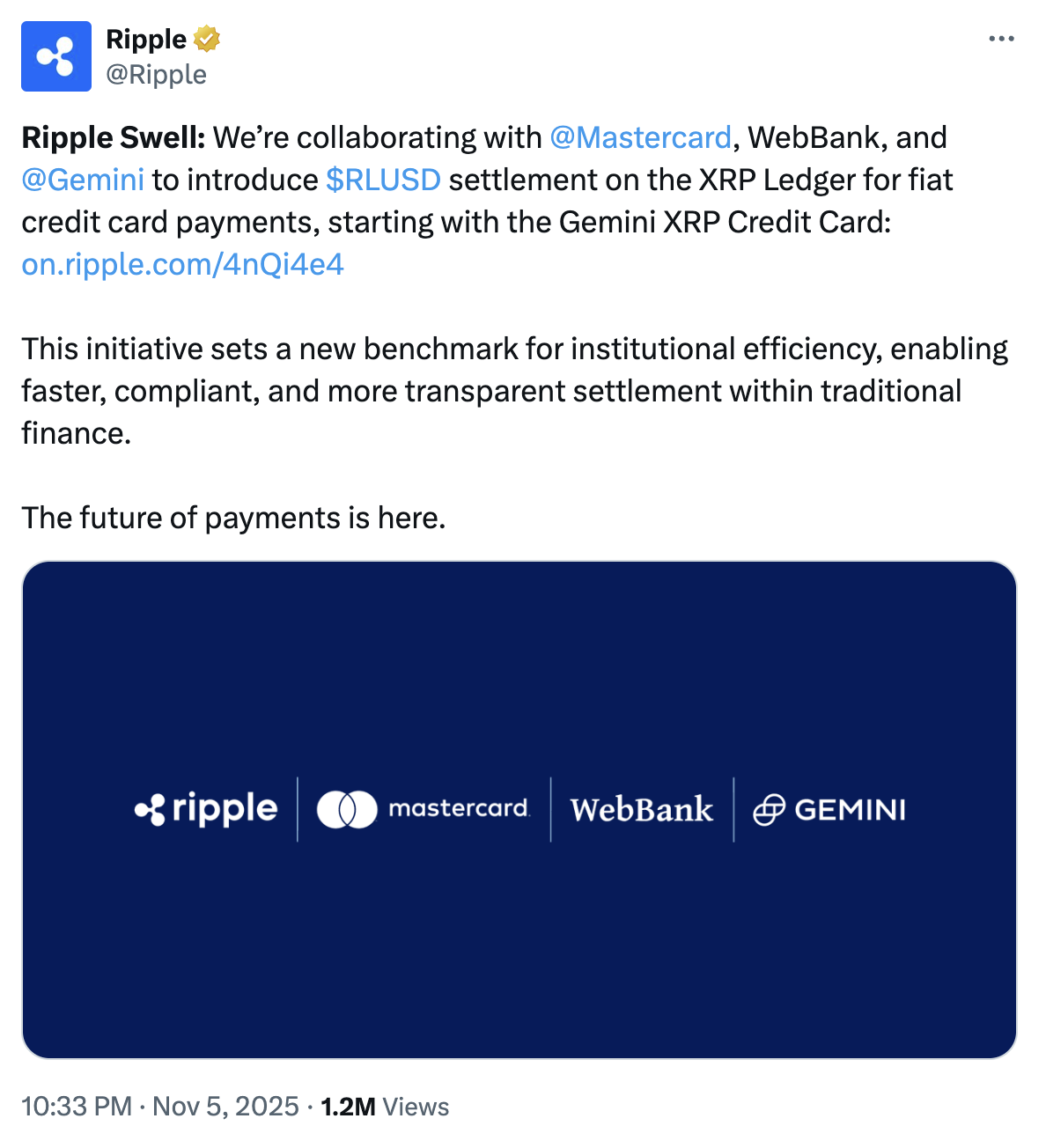Ripple Partners with Mastercard, WebBank, and Gemini
In Ripple Swell 2025 in New York on November 5, 2025, Ripple unveiled its partnership with Mastercard, WebBank, and leading cryptocurrency exchange Gemini to pilot a payment settlement model. This initiative leverages Ripple’s U.S. dollar-backed stablecoin, RLUSD, on the XRP Ledger (XRPL) to streamline settlement of traditional fiat credit card transactions, initially focusing on the Gemini Credit Card issued by WebBank. It stands as a milestone in bridging conventional finance and blockchain technology.

Image Source: Ripple
A New Era of Payment Settlements
Currently, credit card settlements can be slow, costly, and fragmented due to multiple intermediaries and legacy infrastructure. Ripple’s RLUSD stablecoin on the XRPL offers a fast, transparent, and cost-efficient alternative. By settling Mastercard transactions with RLUSD, the process can reduce settlement times drastically and lower transaction costs without compromising regulatory compliance or security. Gemini and Ripple’s existing collaboration earlier this year on the “XRP Edition” Gemini Credit Card laid the groundwork for this deeper integration.
How the Pilot Works
The pilot program is designed to test how WebBank, the issuer of the Gemini Credit Card, can deploy RLUSD on the XRP Ledger to settle card transactions made via Mastercard’s network. This involves issuing RLUSD as the settlement currency between merchants and banks, replacing slower fiat-based clearing systems. This use of regulated stablecoins within public blockchain infrastructure marks a major breakthrough in regulatory acceptance and practical application for stablecoins, demonstrating how such digital assets can coexist and complement traditional financial services.
Market Impact
The announcement generated immediate buzz across crypto and financial markets, with experts anticipating substantial positive price action for XRP, Ripple’s native asset, as this partnership validates Ripple’s technology utility on a large scale. It also sets a precedent for other financial institutions worldwide seeking to harness blockchain for more efficient, transparent transactions. Regulatory frameworks, such as the U.S. GENIUS Act of 2025, which categorizes stablecoins issued by permitted entities as non-securities, underpin this innovation, providing legal clarity and reducing institutional risks associated with digital assets.
Future Outlook
Ripple and WebBank are progressing toward onboarding RLUSD onto the XRPL in the coming months, pending regulatory approvals. Should the pilot succeed, it will pave the way for expanding blockchain-based settlements to other Mastercard-branded products and financial institutions, heralding a new age of interoperable financial infrastructure. The initiative also intensifies competition and innovation in the stablecoin and blockchain space, challenging rivals to develop similarly compliant, efficient payment solutions. It foreshadows future strides in cross-chain interoperability and real-time transaction settlements that benefit merchants, banks, and consumers alike.





Leave a Comment